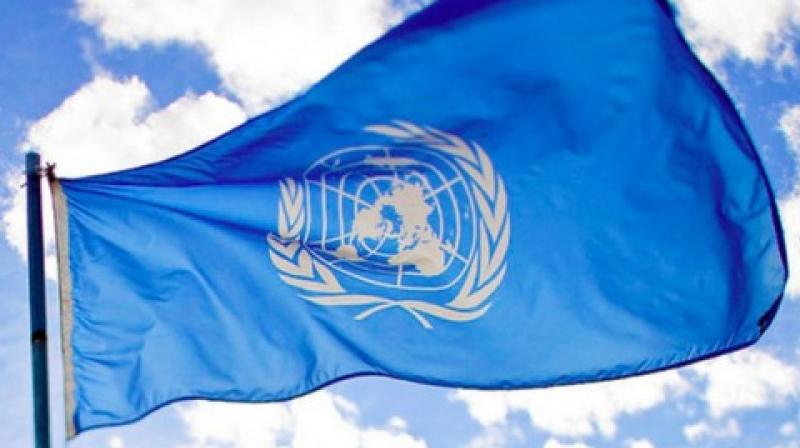UN says 16 staff members freed by South Sudan refugees

Kinshasa: The United Nations said late on Tuesday that 16 staff members taken hostage by unarmed South Sudanese refugees at a UN camp in eastern Congo have been released unharmed.
The UN peacekeeping department said in a statement released at UN headquarters in New York that "the camp is quiet and under full control" of peacekeepers at the Munigi base in North Kivu province.
The UN Mission in Congo said earlier that the South Sudanese refugees took 13 staff members hostage, demanding they be sent to another East African country to avoid their forced return to South Sudan. Negotiations had continued into the evening.
The UN peacekeeping department said later there were 16 hostages. "All staff have returned safely to their homes," it said. "No casualties have been reported. The mission is investigating the incident."
A spokesman for the opposition SPLA-IO party said the hostages were taken as a protest. "They should be allowed to be registered as refugees or go to a third country," Lam Paul Gabriel, a spokesman for the opposition said.
Daniel Ruiz, the head of the North Kivu UN bureau, said earlier that two of the hostages were expatriates and the South Sudanese refugees had demanded asylum in Uganda, Kenya or Ethiopia.
The refugees are among a group of 530 who had fled South Sudan last year and have been staying at the UN camp in Munigi, north of the provincial capital Goma.
Most are part of the opposition movement of South Sudan's former vice president, Riek Machar, and fled fighting with South Sudan forces loyal to President Salva Kiir that erupted in the capital, Juba.
The hostage-taking followed the repatriation to South Sudan on Friday of eight fighters from Machar's Sudanese People's Liberation Movement.
The presence of the South Sudanese rebels worries Congolese civilians in the North Kivu province, who have been plagued for decades by violence as militias vie for control over the mineral-rich region.
South Sudan fell into civil war in December 2013, just two years after it won independence from Sudan. When war broke out, Kiir, an ethnic Dinka, accused Machar, his political rival and an ethnic Nuer, of leading an attempted military coup in the capital that later escalated into a full-blown rebellion.
A peace deal signed in August 2015 amid international pressure has been violated repeatedly by both sides. Machar, who had been reinstated as Kiir's deputy under the agreement, fled into exile after fighting resumed in Juba in July 2016.

